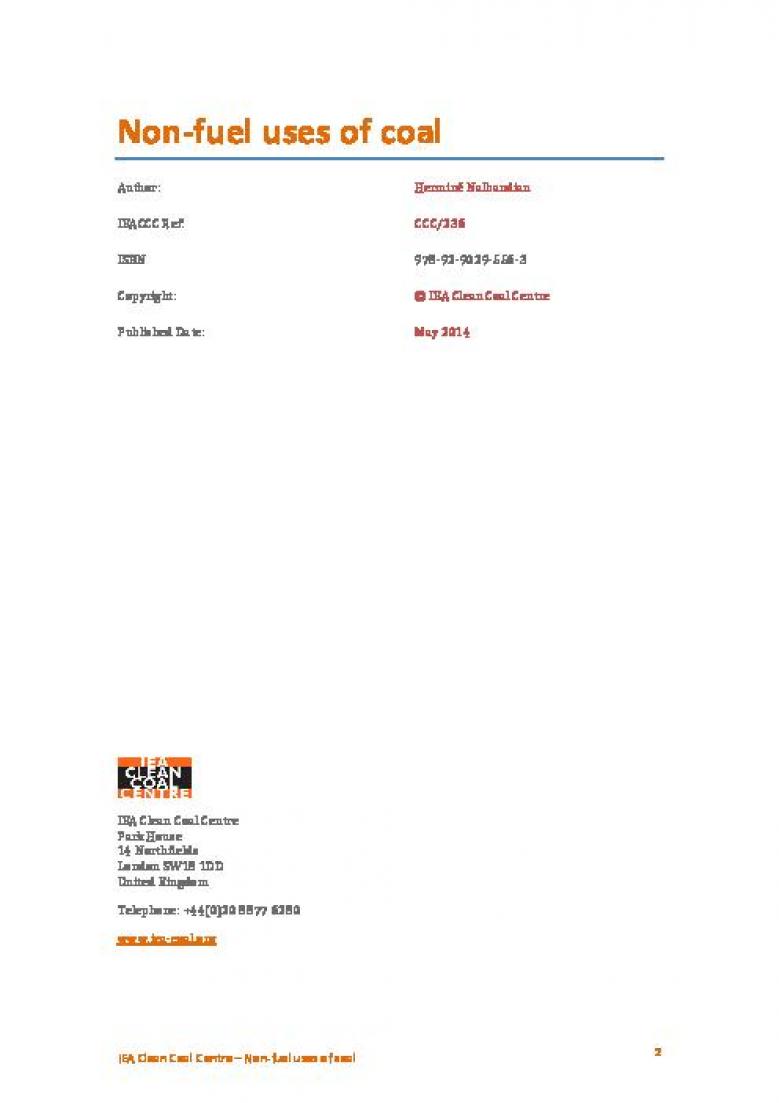Abstract
Industrial products and carbon-based materials such as basic chemicals, plastics and fibres are currently derived mostly from petroleum and natural gas. Materials and chemicals from coal are recognised as an important, practical and profitable source, especially in countries with large coal reserves. Therefore products from coal are an area for further coal utilisation, research and development mainly in these countries. The traditional source of coal chemicals, tars or liquids from by-product coke ovens, has steadily decreased in the last decades. However, there are opportunities for new applications and markets for coal chemicals through gasification. Liquefaction is in general used to produce other types of fuel, for example, for transportation and residential use. Technologies for converting coal-to-chemicals such as methanol-to-olefins (MTO), methanol-to-propylene (MTP), mono-ethylene-glycol (MEG), dimethyl ether (DME) and other chemicals are currently being demonstrated and proving efficient, reliable and profitable. Nonetheless, among the many issues facing the non-fuel uses of coal are capital investments, process technological issues, processing costs and environmental policy and impact. Furthermore, high water consumption and CO2 emissions in coal-to-chemicals processes can play a major role in deciding whether to construct such facilities or not. Application of new technologies for coal-based chemicals is currently mainly in China.
| Attachment | Size |
|---|---|
| 3.49 MB |


